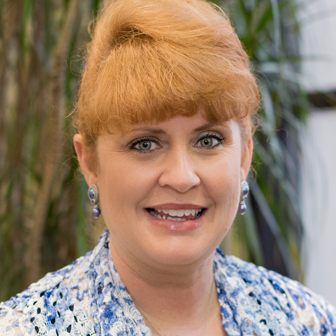Feeling Down? Know When to Seek Help for Depression

Find Your Perfect Match
Answer a few questions and we'll provide you with a list of primary care providers that best fit your needs.
“Being depressed” is a term people use for a range of situations, from having a down day to feeling utter hopelessness in life.
As a medical illness, depression has some well-defined signs and symptoms that last for an extended time. It’s a condition that causes you to feel sad and lose interest in activities you formerly enjoyed. If it progresses, it can cause problems with your physical health, your relationships and your work life.
Symptoms of depression can be mild to severe and include:
- Sadness or feeling “down”
- Tiredness and low energy
- Trouble focusing, concentrating or making decisions
- Anger, irritability or frustration
- Loss of interest or pleasure in activities you once enjoyed
- Trouble sleeping or getting too much sleep
- Feeling isolated and removing yourself from social activities
- Undereating, overeating or craving unhealthy foods
- Anxiety, excessive worry or guilt
- Missing days or underperforming at work or school
- Suicidal thoughts
- Headache, stomachache or muscle pain
- Drug or alcohol abuse
Seeking a Diagnosis
“For anything outside of a month when you’re not yourself, there’s probably something clinical going on,” says Beth Esposito, MS, LPCC-S, LSW, chief of clinical operations with Samaritan Behavioral Health in Dayton, Ohio.
“When you notice an impact on your personal relationships and your work relationships, or if other people are noticing a difference in you, seek professional help. We all need help at some point. Depression is treatable and curable. Treatment works. People do recover.”
About one in 15 adults (6.7 percent) experience depression in a given year. About 16.6 percent of people will have some depression in their lifetime. For many people, depression first appears during the late teens to mid-20s. Women are more likely than men to experience depression, possibly due to life cycle and hormonal factors, such as those that happen in menopause. Having a family history of depression or other mental disorder increases the chances of having depression.
Diagnosing depression begins with looking at symptoms, their duration and how they are affecting your life and relationships. It’s also important to rule out medical conditions that mimic depression, such as thyroid issues, a brain tumor or vitamin deficiency.
Treatment
Even the most severe cases of depression can be treated. The earlier treatment begins, the more effective it is.
“A lot of people start by seeing their family physician. The doctor may refer people on to a counselor for therapy or to a psychiatrist for medication management,” Esposito says.
“There are many types of depression. As counselors at Samaritan Behavioral Health, we determine the severity up front and make recommendations for treatment. We deal with each person as an individual. If we do an evaluation and know a person will benefit from medication, we refer that person to a psychiatrist.”
She says she and her counselor team emphasize being available to people when they need help. They use motivational interviewing, approaching their relationship with patients as a partnership in which the counselor helps the client recognize deep-seated motivations and works to change behavior by setting goals and resolving uncertainties.
“Best practice is to find the most efficient way to treat you and get you back to functioning in society,” Esposito says.
Treatment will depend on your symptoms. For mild depression, counseling and self-care may be enough. The most effective therapy for moderate or severe depression is a combination of talk therapy and medication.
Cognitive behavioral therapy is a method of challenging negative thought processes (e.g. I’m worthless) with positive thoughts. The goal is to make you healthier and more positive on a consistent basis.
Esposito says medications fall into categories of anti-anxiety, antidepressant and antipsychotic (to treat hallucinations and delusions that may occur with severe mental illness). It may take a little time to determine the type of drug and dosage that works best for you.
Even the most severe cases of depression can be treated.
“As a last resort, electroconvulsive therapy (ECT) is an option to help someone who is severely depressed for a long time and not doing well with medications or therapy,” Esposito says. No one knows exactly why it works, but ECT seems to reboot the system and lift depression in many cases.
She concludes, “The hopelessness of depression doesn’t have to be permanent. Make the effort to get treatment, because you can get better. People often come in and say, ‘I don’t remember who I am.’ But with treatment, you can feel like yourself again.”
Take Care of Yourself
In addition to seeking professional assistance, you can help yourself by incorporating these practices into your daily life:
- Get enough sleep.
- Follow a healthy diet.
- Exercise regularly.
- Avoid alcohol and drugs.
- Get involved in activities that make you happy.
- Spend time with family and friends.
- Practice meditation, tai chi or other relaxation methods.
- Add omega-3 fatty acids to your diet through supplements or by eating fish.
Read more on self-help ways to beat depression.
Find Your Perfect Match
Answer a few questions and we'll provide you with a list of primary care providers that best fit your needs.
Source: Premier HealthNet: Depression: More than Just the Blues; Healthline.com; American Psychiatric Association; Beth Esposito, MS, LPCC-S, LSW, Chief of Clinical Operations, Samaritan Behavioral Health.




.tmb-card-head.webp?sfvrsn=680c0961_8)
